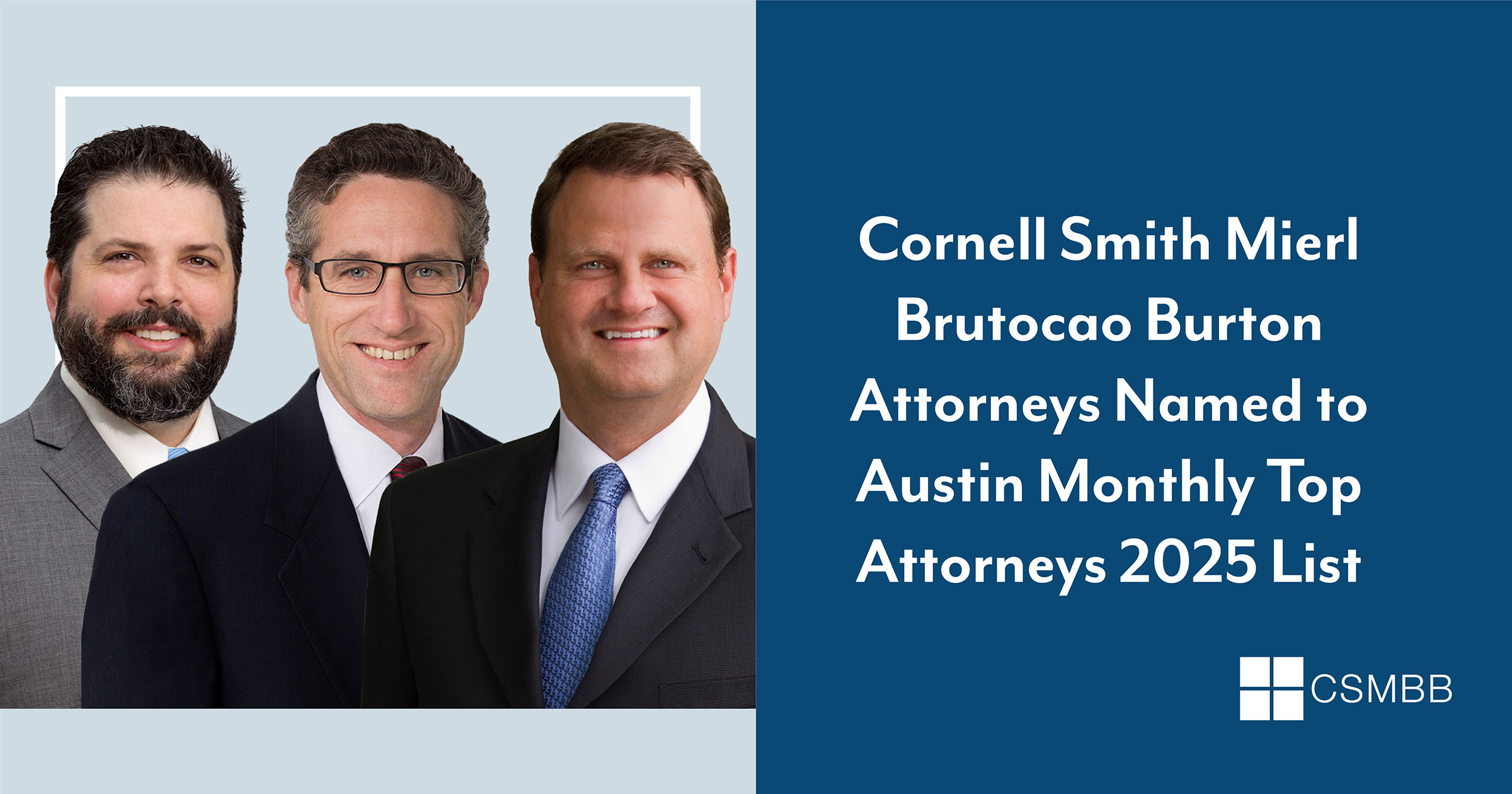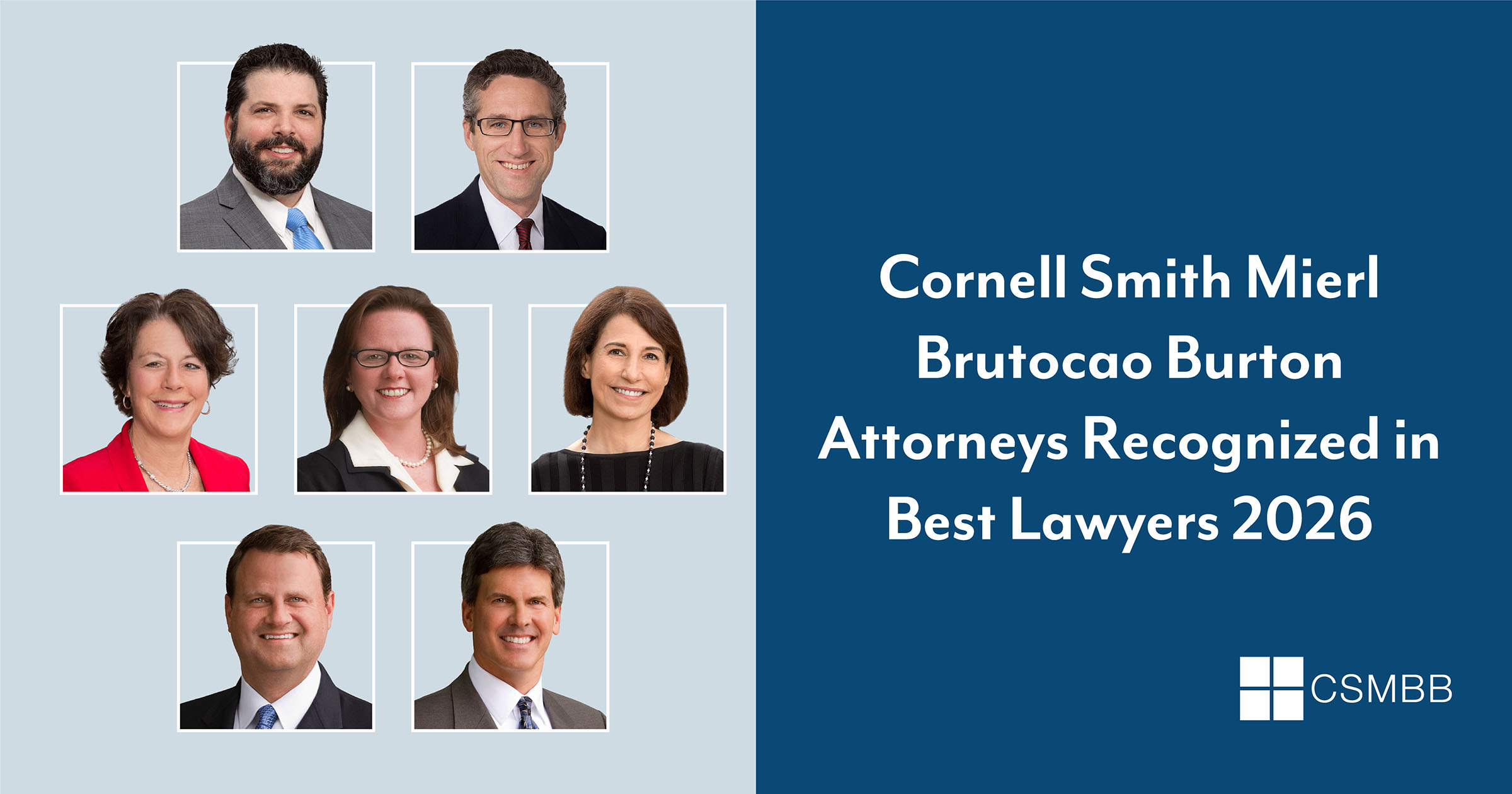New California Employment Laws for 2026

In the past year, the California legislature has continued dreaming up new employment laws, most of which go into effect on January 1, 2026. Firm partners Scott Brutocao and Laura Fauber will be reviewing all of these laws in detail, along with a broad-based summary of how California employment laws differ from Texas laws, in our upcoming “California Law for Texas Employers” seminar in January, which will occur on Wednesday, January 14, 2026 from 9 am – 12 pm at the Norris Conference Center in Austin and via Zoom. Look soon for a formal announcement regarding registration information.
What’s new?
Clawback Agreements
AB 692 puts significant limitations on “clawback” agreements, i.e., contracts to recoup advanced bonuses or training costs if an employee leaves employment before a minimum period of time. This law makes such contracts illegal unless they comply with certain requirements. For contracts providing a “discretionary or unearned monetary payment, including a financial bonus” (read: signing and relocation bonuses) entered into on or after January 1, 2026, such contracts must (a) set forth the terms of the repayment obligation in a separate agreement; (b) notify the employee that they have the right to consult an attorney regarding the agreement and be provided with a reasonable time period of not less than five business days to obtain advice of counsel; (c) prorate the repayment based upon time worked by the employee (with a maximum retention period two years) and not accrue interest; (d) give the worker an option to defer receipt of the payment to the end of the retention period; and (e) not require repayment if the worker is terminated, except if the worker is terminated for misconduct (which is the same definition used for unemployment benefits).
AB 692 also has specific requirements for repayment of the cost of tuition that employers provide. First, employers may require repayments only if the tuition assistance is (1) for a degree that is offered by an accredited third-party institution authorized to operate in California , (2) not required for a worker’s current employment, and (3) transferable and useful for employment beyond the worker’s current employer (a “transferable credential”). In such cases, employers must ensure that their repayment contract: (1) meets the requirements of sections (a) and (e) above; (2) does not require the transferable credential as a condition of employment; (3) specifies the repayment amount, which cannot exceed the cost to the employer, before the worker agrees to the contract; and (4) provides for a prorated repayment amount during any required employment period and does not require an accelerated payment schedule if the worker separates from employment.
Minimum Wage
California’s minimum wage increased to $16.90 per hour effective January 1, 2026, which means that the minimum salary requirements for full-time exempt employees will be $70,304 per year. There are also separate and higher minimum wages for fast food restaurant employees, health care workers, and employees in about 50 California cities.
Pay Disclosures
California employers are currently required to make available the “pay scale” of open positions when an applicant so requests and include the pay scale in any job posting. SB 642 revises the definition of “pay scale” to mean a “good faith” estimate of the salary or hourly wage range that the employer reasonably expects to pay for the position. It further expands the statute of limitations for violations of California’s Equal Pay Act, which prohibits pay discrimination on the basis of sex or race, from two to three years, and allows employees to sue for the entire period of time in which an employer has violated the provisions, up to a maximum of six years.
Employer Pay Data
California employers of 100 or more employees are required to submit an annual pay data report that includes the number of employees by race, ethnicity, and sex in 10 specified job categories, along with related information. SB 464 requires employers to collect and store any demographic information collected separate from employees’ personnel records, and beginning January 1, 2027, increase the number of job categories from 10 to 23. It also makes civil penalties mandatory for employers who fail to file this report if requested to do so by the Civil Rights Department (CRD).
New “Workplace Know Your Rights Act”
SB 294 would require employers, on or before February 1, 2026, and annually thereafter, to provide a stand-alone written notice to each new hire and current employee of specified rights, including, among other things, workers’ compensation, notice requirements related to inspections conducted by an immigration agency, the right to organize a union or engage in concerted activity, and constitutional rights when interacting with law enforcement at the workplace. The Labor Commissioner is required to post a template notice on its website by January 1, 2026, updated annually thereafter, that employers may use. Employers must keep track of its compliance with these requirements for three years. In addition, by March 30, 2026, employers are required to provide each employee the opportunity to name an emergency contact, and to do the same for new hires thereafter. The law also states that the employer “shall allow” an employee to provide updated emergency contact information, to indicate whether the contact should be notified if the employee is arrested or detained on their worksite, or during work hours or during the performance of the employee’s job duties, but not on the worksite, if the employer has actual knowledge of the arrest or detention. Strict penalties apply.
Personnel Records Change
Existing law requires employers to permit employees access to their personnel records. SB 513 requires that education and training records be included. For employers who maintain education and training records, they must ensure those records include: the name of the employee, the name of the training provider, the duration and date of the training, the core competencies of a training, including skills in equipment or software, and the resulting certification or qualification.
Bias Mitigation Training
SB 303 was passed to clarify that an employee’s assessment, testing, admission, or acknowledgment of their own personal bias, made in good faith or as part of a bias mitigation training, does not constitute unlawful discrimination. This bill was passed to address concerns that bias-related training information could be misused in discrimination claims against employees or employers.
Paid Sick Leave Tweaks
California employees have long been entitled to Paid Sick Leave (PSL) and to unpaid job-protected leave for certain reasons. AB 406 expands the reasons for use of PSL and protected unpaid leave for employees if they or a family member are a victim of certain crimes and are attending judicial proceedings related to that crime. For jury duty leave, the bill also removes the requirement that employees must provide reasonable notice prior to taking time off to serve on a jury. However, if an employee uses PSL or unpaid job-protected leave for jury duty, the same notice standard applies for this covered reason as for other covered reasons of use under these provisions, i.e. reasonable advance notice unless advance notice is not feasible. Given these changes, the CRD will likely update its model notice, Survivors of Violence and Family Members of Victims Right to Leave and Accommodations. Similarly, the California Labor Commissioner will likely update its paid sick leave notice.
CalWARN Tweaks
Employers covered by CalWARN will likely need to update their notices under that statute. In addition to current requirements, SB 617 now requires employers to indicate whether they plan to coordinate services through the local workforce development board as well as information about their local workforce development board and California’s CalFresh food assistance program.
Independent Contractors and Employee Vehicle Expenses
SB 809 clarifies that mere ownership of a vehicle used to perform services for compensation does not make that person an independent contractor. It also clarifies that the duty of an employer to indemnify its employees for reasonable business expenses applies to the use of a vehicle owned by an employee and used as part of their duties. It also establishes a “amnesty program” for eligible construction contractors in connection with misclassification of drivers as independent contractors.
Paid Family Leave
Existing law provides employees who take paid family leave to take time off work for certain purposes, including caring for a seriously ill family member. Commencing July 1, 2028, SB 590 expands eligibility for benefits to include individuals who take time off work to care for a seriously ill “designated person.” “Designated person” means a person “related by blood or whose association with the individual is the equivalent of a family relationship.” This had already been done under the California Family Rights Act, which provides protected, but unpaid, leave and the Healthy Workplaces, Healthy Families Act of 2014 (paid sick leave law).
Gig Workers’ Right to Join a Union
AB 1340 will allow transportation network company drivers to form, join, and participate in a union, and otherwise engage in protected concerted activities, without impacting their status as independent contractors.
Penalty for Failing to Pay Wage and Hour Judgments
Under SB 261, employers who fail to satisfy a judgment for more than 180 days are now subject to a civil penalty of up to three times the amount of the outstanding judgment, provided that the judgment arose from the employer’s nonpayment of work performed in the state.




